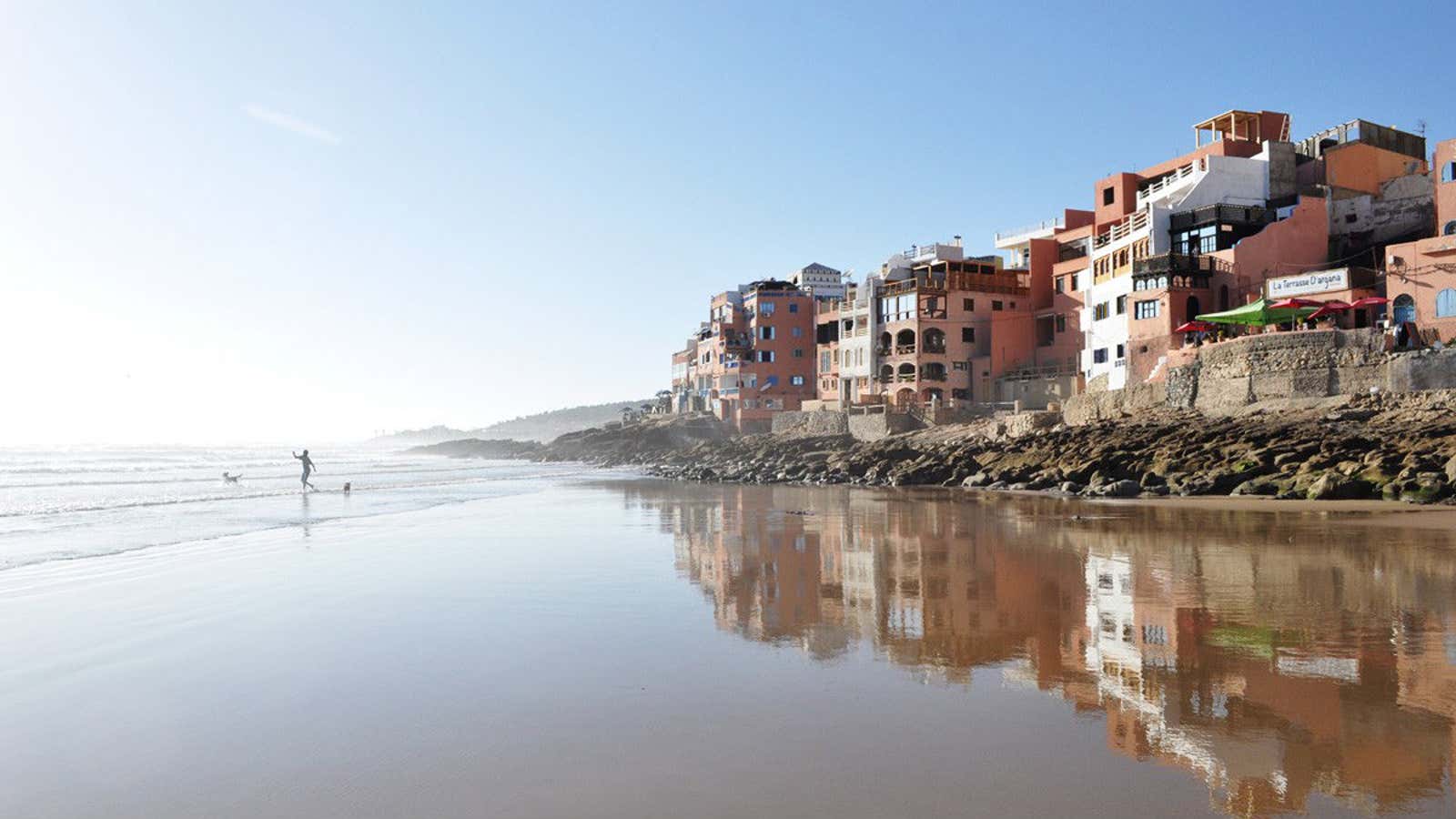Shortly after graduating from university in the UK—and united by our shared desire to escape the corporate conveyor belt—we left the quaint cobbled streets of Durham, England behind and embarked on a trans-continental quest to build our startup, Maptia.
One thousand days, four continents, and many (mis)adventures later, the three of us have launched a growing global storytelling platform, where photographers and writers share remarkable stories from all over the planet.
This is the story of our 10-month relocation from the buzzing startup hub of Seattle to Taghazout—a small village on the coast of Morocco, where surfers and fishermen rub shoulders with nomadic entrepreneurs—and why, in retrospect, it turned out to be one of the best decisions we ever made.
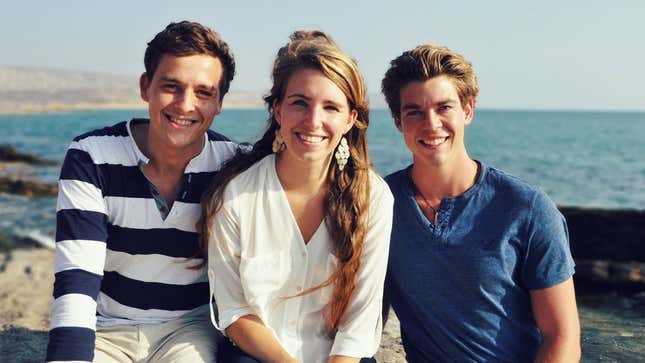
The year was drawing to a close and we had just completed one of the most intensive and demanding periods of our startup adventure so far—a 12-week stint in Seattle at Techstars, one of the top US accelerator programs.
In just a few short months, we had learned more than we had ever thought possible from the amazing team of Techstars mentors, but our temporary US visas were about to expire. We wanted to build and launch the first version of the platform on our own terms—without having to take on any additional investment. To do this, we knew we would need to get creative and use the modest amount left from the Techstars funding in the most efficient way possible.
Having grown up in the UK, relocating to London might have seemed like the obvious next step, but the high rent and living costs quickly ruled it out. Instead, we spun the globe and found a basic but good value apartment only 10m (33 ft) from the Atlantic Ocean in the small Moroccan fishing village of Taghazout. At that point, all we really needed was a relatively fast internet connection and a place where we could be 100% focused on building and launching the first version of Maptia.
Situated just 12 miles north of the city of Agadir, and a four-hour Ryanair flight away from London, our costs for rent and office space in Taghazout were a fraction of what they would have been in any major European city. We also found plenty of other ways to be creative and stretch our budget even further. For instance, our office chairs and desks were haggled from a nearby scrapyard and given a lick of paint. Every Wednesday we took a big backpack to the aptly-named “Banana Village” and filled it with fresh fruit and veg from the local market. This kept the food bill for our team down to less than $10 per person per week.
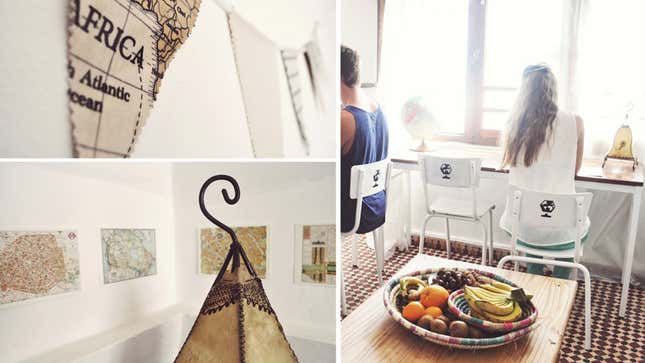
Living in Morocco not only saved us money, it also helped dramatically reduce our stress levels. We are lucky enough to work on something we are all incredibly passionate about, and as a result the line between work and life has always been very blurred. As a result, we have a tendency to burn the candle at both ends—and this can inevitably lead to burnout. Our most difficult experience with this was the infamous “Techstars Hangover” that hit us hard after working flat-out and not getting enough sleep (or fresh air for that matter) during the increasingly intense program.
The environment in Taghazout provided the perfect antidote and helped us to find some sense of balance again. Even during periods of intense and productive late-night work, we could hear the constant sound of the waves below our window. We were encouraged to renew ourselves by getting out our surroundings—from hiking in the nearby Paradise Valley, to the odd rooftop yoga session, or finding the time to surf the world-class point breaks just a few minutes away.
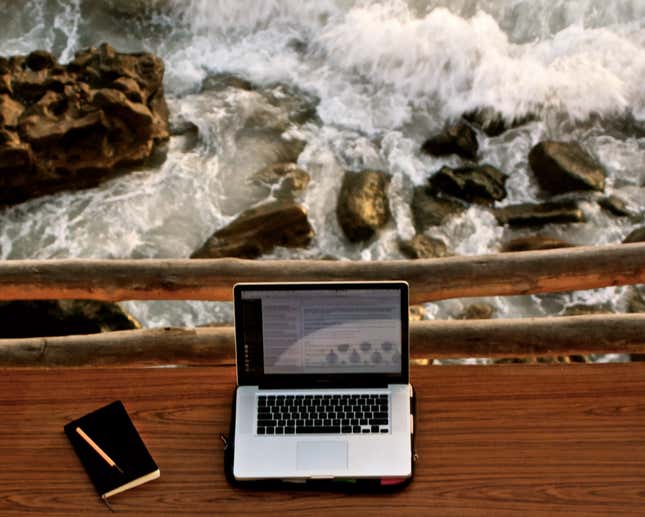
Stepping outside of the opinionated, fast-paced, and often intense startup ecosystem also turned out to be a crucially important step for our team. Being in Taghazout enabled us to gain perspective and clarity on our long-term roadmap and our vision for Maptia’s future.
We had spent over a year working hard on our design, development, and marketing skills, listening to every possible piece of advice we could soak up, and talking to photographers, writers, and travelers about how we could make Maptia most valuable to them. It was time to gain a degree of isolation, get our heads down, stop trying to follow too many differing pieces of advice, and to trust our own instincts and vision to take us the next step of the way.
Fortunately, it turned out that Taghazout was the perfect place for us to do this. We found that our time in the otherwise sleepy Moroccan village enabled us to hone in on defining our vision—the purpose behind our startup—and also gave us the singular focus we needed to build a solid first version of the Maptia platform.
Our quest to build Maptia has now taken us from Santiago in Chile, to Seattle, to Taghazout, and during the past year to the mountains of Switzerland—where we launched the new version of Maptia last December. We’re now home for six or so months, (finally) spending time getting to know the fantastic UK-based startup communities based close to where we grew up in Bristol and London—then next up, we’re planning to head to Asia for the latter part of 2015.
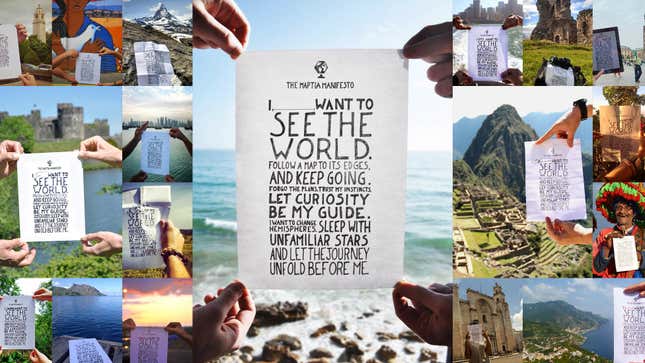
If you’re taken with the idea of relocating your team to Taghazout, you might want to test the waters first and stay at one of the local surf camps, or check out The Blue House, a shared place for startup teams to live and work (applications for the month long stay close on April 16, 2015). There is also a beachfront co-working space—Sun Desk—that has recently opened its doors. You can also find more details about Taghazout remote living costs over on the Nomadlist.io website.
At the end of the day, remember that life in a small Moroccan village isn’t for everyone, so be sure that your team can cope with a certain amount of chaos and is ready to embrace another culture and way of life. If you think the odd power outage, runaway goat, or distracting construction noise might prove stressful, then perhaps your team isn’t as suited to a long-term relocation. However, if everyone on your team is up for an adventure, and your company would benefit from a few months of focused work, then relocating to Taghazout might just be one of the best decisions you will ever make.
